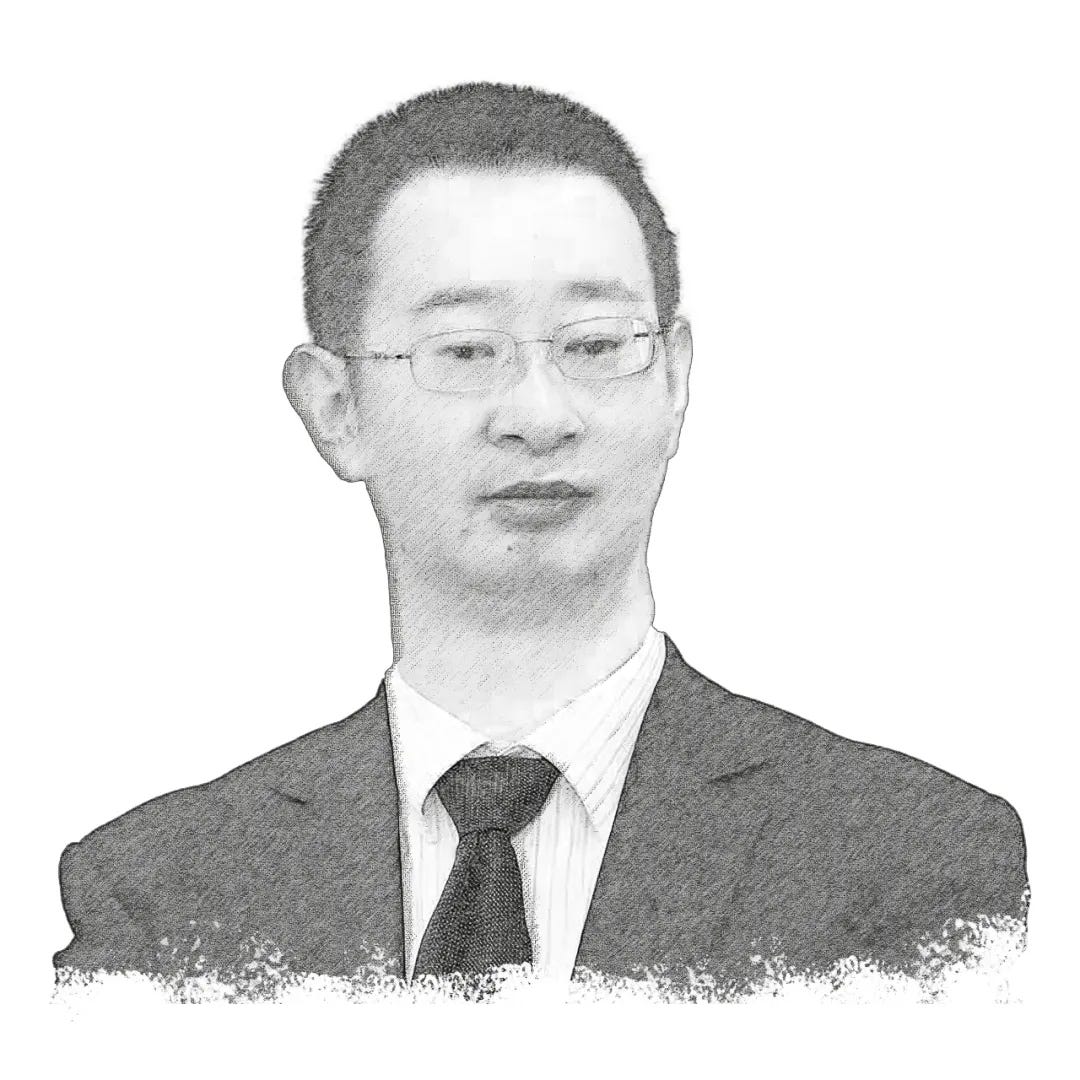Li Chen: China still has many lessons to learn in shaping the international order
The Renmin University scholar says Beijing must develop patience and must not repeat Washington's errors
This is the second article translated from the special series in this year’s 16th issue of 世界知识 World Affairs, a Chinese-language magazine published by World Affairs Press under China’s Ministry of Foreign Affairs. The series features contributions from some of China’s “foremost scholars,” according to the magazine, on the theme “The Multipolar World Is Coming at Speed.”
The article is written by Li Chen, an associate professor and Vice Dean of the School of International Studies, Renmin University of China.
He received his Ph.D. from the University of Cambridge and double master degree from School of International Studies, Peking University, and Department of International History, London School of Economics and Political Science.
Below is our translation.
李晨:塑造国际秩序是全球大国成长必修课
Li Chen: Shaping the international order is a required course for a rising global power
On the 80th anniversary of the post-war era, a central question for the future of the international order is whether major powers can strike a balance between “self-interest” and “common interest.” The international responsibilities that any single power can assume are limited, and the stability of any international order rests on coordination and cooperation among nations. On the one hand, it is unrealistic to expect any major power to indefinitely shoulder global responsibilities; on the other hand, given their unique position in the international system, major powers must strike a balance between pursuing national interests and providing global public goods for the progress of the international order.
Recently, I have been reading Living the Asian Century, the memoir of well-known Singaporean scholar Kishore Mahbubani. Drawing on his extensive diplomatic experience, Mahbubani argues that for small states to thrive in the international system, they must accurately understand how major powers safeguard their own interests, form reasonable expectations of them, seek balance among them, and support the development of international mechanisms. Only then can major powers counterbalance one another, while international mechanisms help restrain their behaviour. His memoir underscores that when major powers are entirely unchecked, the international order suffers; when they exercise a degree of self-restraint, it enhances stability in the international order and earns them broader support from the international community.
When World War II drew to its close, U.S. President Franklin D. Roosevelt, based on idealist and liberal principles of governance, advanced the concept of the “Four Policemen.” He envisioned a collaborative arrangement in which four major powers—the United States, the United Kingdom, China, and the Soviet Union—would assume different responsibilities for different regions and jointly manage global affairs. The idea reflected a relatively multipolar vision of the international order, marked by limited ideological confrontation.
Yet the concept contained two limitations. First, it underestimated the contradictions and divisions among the major powers, both before and after the war, and thus failed to establish mechanisms for managing and reconciling these differences. With the onset of the Cold War and the rise of a U.S.–Soviet bipolar confrontation, the practical foundation of Roosevelt’s vision collapsed entirely. Second, the concept was shaped by great-power politics in the Eurocentric era of international relations. In the wake of postwar independence movements in the developing world and the profound transformation of the international system, such a narrow emphasis on great-power cooperation could no longer define the international order, let alone account for the increasingly significant role of the Global South in shaping it today.
Compared with the end of World War II, the world today is vastly different, and so is the United States. What can truly protect world peace and development is the international community’s steadfast pursuit of multilateralism, global interdependence, and prosperity, as well as its collective resistance to hegemony and unilateralism.
The question of the international order’s political contours, or its ideological orientation, has long been present. In 1945, at the end of World War II, President Roosevelt, drawing on the practical cooperation of the anti-Fascist alliance, approached ideological issues with caution when envisioning the postwar order. His aim was to find common ground while respecting differences and to foster consensus among nations, particularly among the major powers.
However, following the Cold War’s bipolar confrontation and the brief unipolar moment that ensued, the United States began to project its ideology into the international system and order, using it as a tool for asserting dominance and engaging in great-power competition. By drawing ideological lines, it has discriminated against, contained, and suppressed other states, resulting in strategic misjudgments and the loss of many opportunities to build a more inclusive and stable global order. This approach has also contributed to its current strategic passivity. The gap between U.S. rhetoric and practice, coupled with its double standards, has made America’s so-called “leadership” increasingly untenable and driven it toward retreat. Global disillusionment with the United States is deepening, and the ideological contours of the international order are being redrawn.
The actions of the United States after World War II have provided China with invaluable lessons and insights. If China were to become a leading global power, it must fully understand the complexity of the world. With abundant patience and wisdom, China should rely on the international system and multilateral mechanisms, working to seek and build international consensus on a sector-by-sector basis.
China is also likely to face the challenge of a realignment of driving forces in the evolution of the international order. The current strategic adjustments of the United States may prove long-lasting, and once the U.S.’ role in the international order shifts, governance responsibilities at both the global level and within the Eastern Hemisphere will undergo historic restructuring. From a medium- to long-term perspective, neither the global nor regional order will require other major powers to “fill the vacuum” by imitating America’s approach. Rather, major powers will need to ensure consistency in their policies and strategies, continue providing public goods, and place greater emphasis on finding common ground while respecting differences, fostering consensus among nations at both global and regional levels, and working toward a sustainable security framework and international order.
China has evolved into a global power, and assuming a more proactive role in shaping the international order is crucial to fulfilling its responsibilities as a major global player. Conceptually, China has already laid the groundwork by advancing the vision of a Community of Shared Future for Mankind and launching three global initiatives. The next step is to follow through in practice—acting as a builder of world peace, a contributor to global development, a defender of the international order, and a facilitator of great-power cooperation. By consolidating its contributions across different fields into a coherent whole, China can demonstrate through concrete actions that its pursuit of self-interest and common interest are interconnected and mutually reinforcing—setting its approach apart from that of the United States.
In June this year, Professor Graham Allison from Harvard University visited the School of International Studies at Renmin University of China, where he had discussions with me and several colleagues. We shared concerns about the growing frequency and interconnectedness of crises and conflicts, as well as the escalating risks that could spiral out of control. We agreed that major powers such as China and the United States should draw lessons from history and not underestimate the challenges posed by local crises, regional conflicts, and technological transformations. Strengthening communication is essential, and it would be unwise to restrict or even reduce cooperation due to “pan-securitisation.” The world expects China and the United States, at a time of transformation in the international order, to sustain and expand cooperation across a wide range of issues.






"What can truly protect world peace and development is the international community’s steadfast pursuit of multilateralism, global interdependence, and prosperity, as well as its collective resistance to hegemony and unilateralism."
In other words fostering a considerate attitude, generosity and civility. Applicable to human relations at every level.